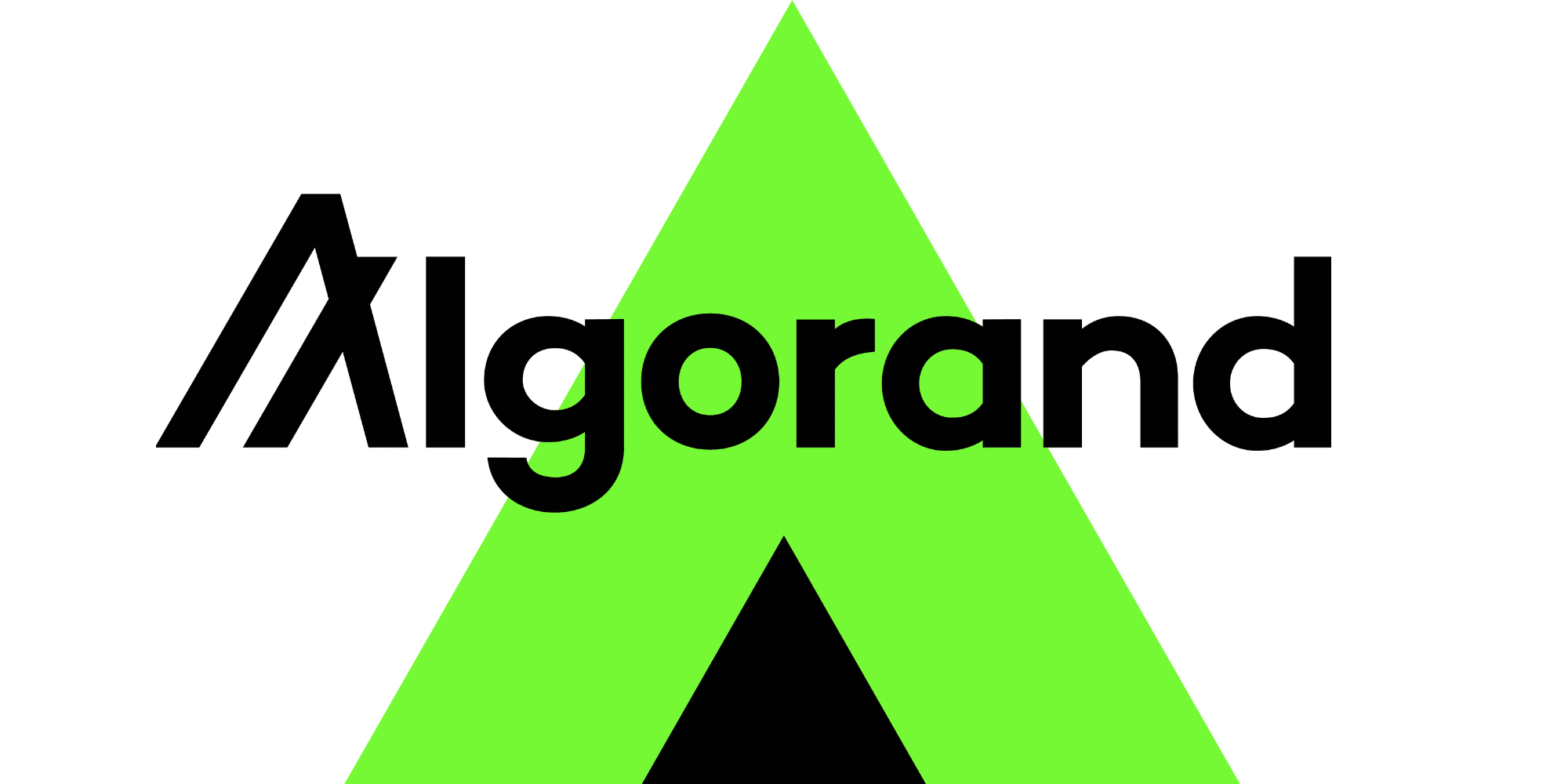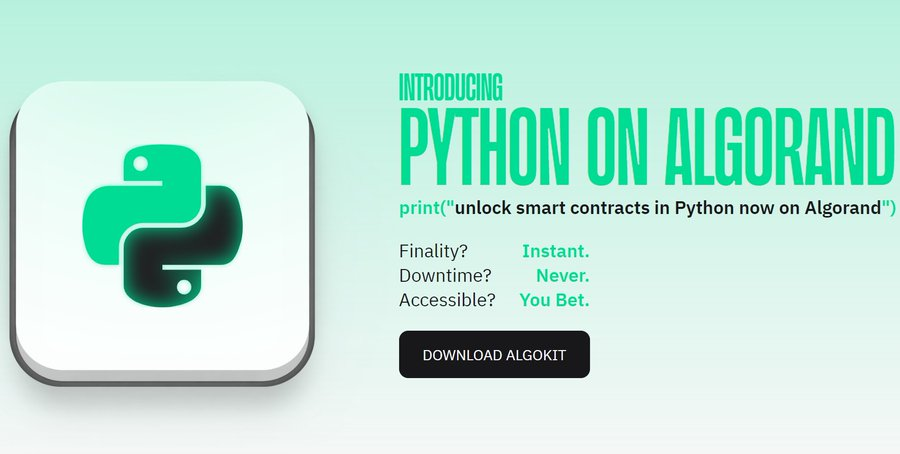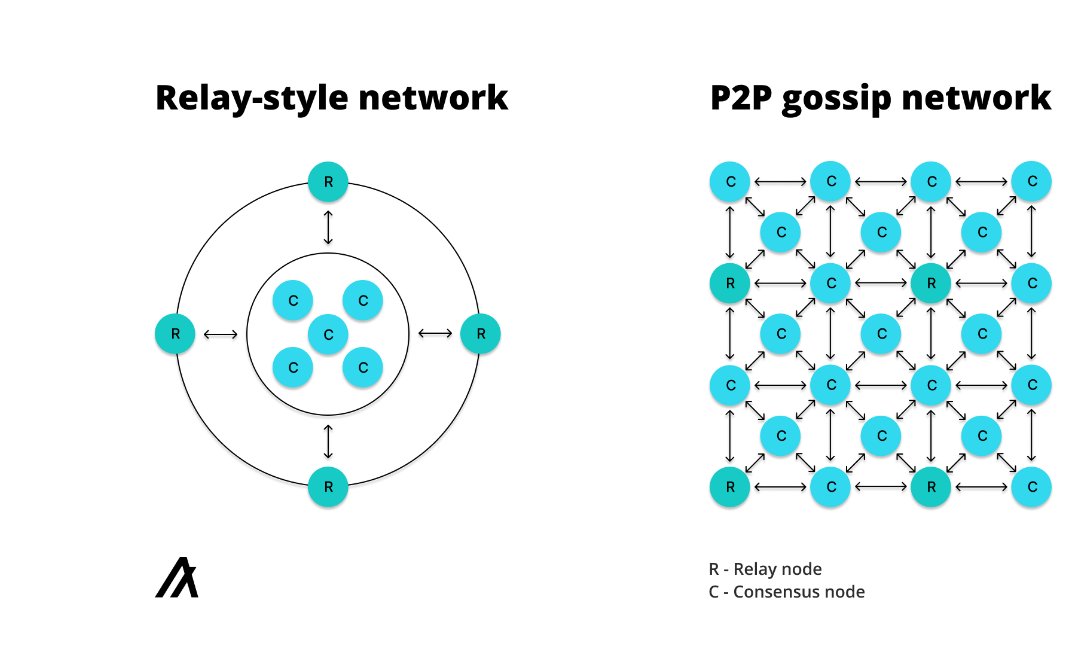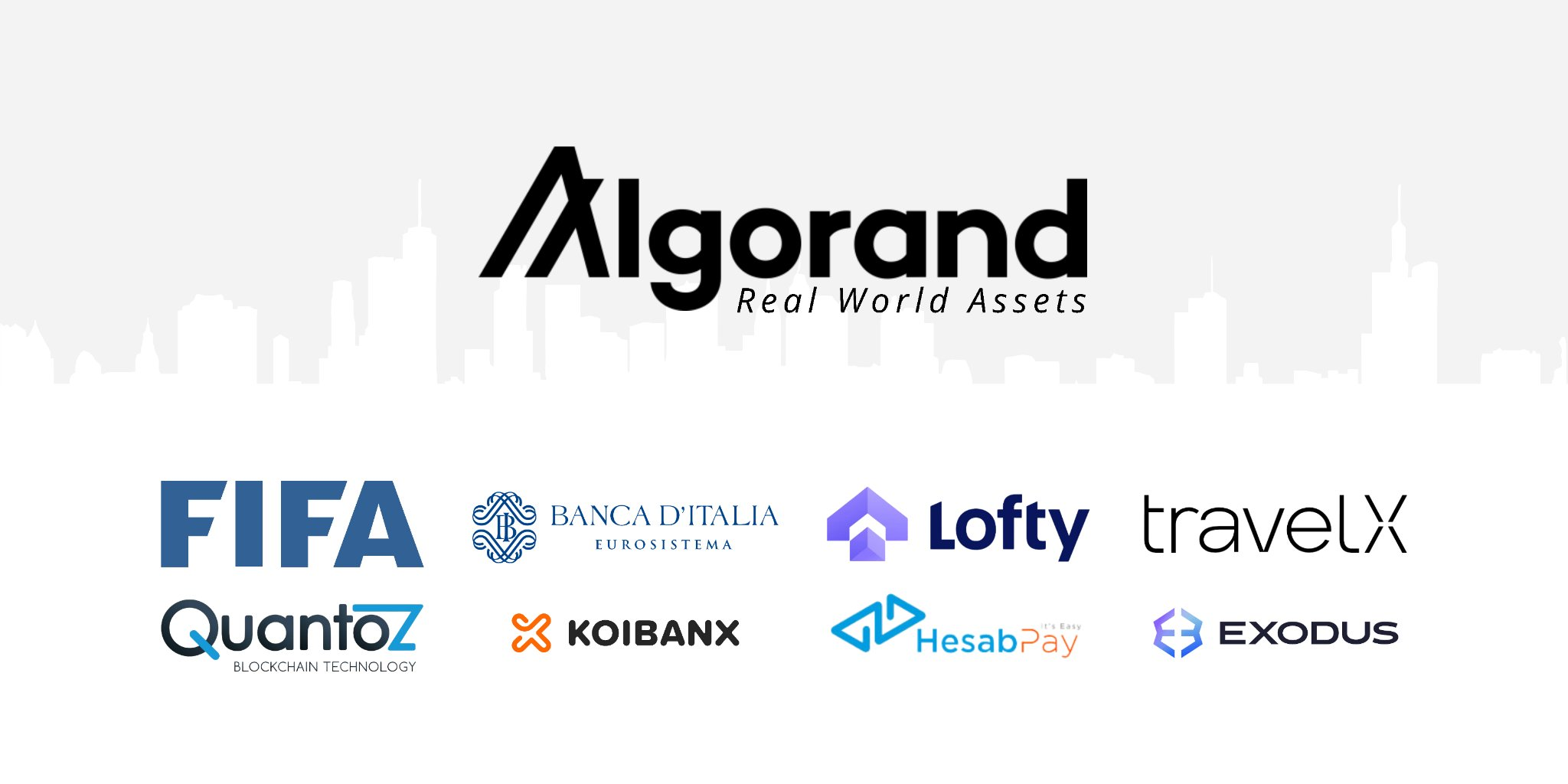TLDR
AlgoKit 2.0 has been released, supporting the Python native language, creating a developer-friendly development environment, and rapidly expanding the Algorand developer community.
Upgraded consensus incentive mechanism, rewarding consensus nodes with ALGO for participating in consensus execution, increasing the application scenarios for ALGO, and further ensuring network security and decentralization.
Fully supporting RWA projects on Algorand, tokenizing real-world assets such as agricultural products, physical assets, airline tickets, mutual funds, etc., introducing traditional assets to the blockchain.
Lofty, the leading RWA project on the Algorand blockchain, helps users invest in real estate worldwide, with a minimum investment of only $50 to immediately receive rental income.
Hosting the "Change the Game Rules" global hackathon to help high-quality projects prioritize participation in upcoming incubation and acceleration programs and obtain financing opportunities.
I. Background
Algorand was founded in 2017 as a pure proof-of-stake Layer1 blockchain protocol aimed at connecting blockchain and the real world. The founder is Silvio Micali, a distinguished professor at MIT and a pioneer in cryptography. Due to his groundbreaking contributions to verifiable random functions (VRF) and zero-knowledge proofs, Silvio Micali was awarded the Turing Award in 2012, and these technologies are now widely used in the encryption industry. Silvio Micali's profound expertise in cryptography has played a crucial role in building Algorand's strong technical foundation. Algorand and Silvio Micali were praised and recognized by the Chairman of the U.S. Securities and Exchange Commission, Gary Gensler, in 2018 and 2019, making it a star project with a halo.

Due to Algorand's use of its own state machine, AVM (Algorand Virtual Machine), ASA (Algorand Standard Assets), and the unique programming language TEAL, the threshold for developers to build on the chain is too high. Despite the price of ALGO rising several times in the last DeFi-led bull market, the ecosystem's performance was mediocre, and the value of ALGO was not supported by the ecosystem as expected.
In the new phase, Algorand is making comprehensive efforts to connect blockchain and the real world, aiming to promote the large-scale adoption of blockchain through technological innovation, marketing strategies, ecosystem construction, and developer support.
II. Technological Upgrades Driving Adoption
2.1 Release of AlgoKit 2.0, Supporting Python Language
To further support developers, Algorand has released AlgoKit 2.0. AlgoKit is a unique developer tool of Algorand, solving complex issues in Web3 by simplifying setup processes and providing various libraries and templates for easily building Algorand dApps.
AlgoKit also simplifies the development, testing, and deployment processes in Web3. Compared to other mainnets, deploying dApps requires developing contracts, testing on the testnet, and then deploying them to the mainnet for final testing, while AlgoKit provides a more efficient method. Developers can directly test and deploy on the Algorand mainnet by temporarily opening an isolated space called the "local network." In other words, AlgoKit simplifies the complex testing process on the testnet and mainnet.
AlgoKit 2.0 provides developers with a complete set of development tools and resources, including smart contract templates, debugging tools, and performance optimization tools. The release of AlgoKit 2.0 enables developers to develop more efficiently on Algorand, improving the quality and performance of applications. As most developers are not familiar with building using the unique TEAL language, the introduction of the native Python language in AlgoKit 2.0 significantly lowers the development threshold.

After announcing support for the Python language, the Algorand developer community has rapidly expanded. The registration team for the Algorand Global Hackathon exceeded 400, and in just the past month, over 3000 Python developers have received technical support from Algorand. This indicates that developers have shown great interest and enthusiasm in using Python to build applications on Algorand. From now on, developers can seamlessly build any ecosystem applications, including RWA, DeFi, GameFi, and more on the chain, laying the foundation for the prosperity of Algorand's ecosystem.
2.2 Dynamic Round Time
In January 2024, dynamic rounds, also known as dynamic lambda, were incorporated into the Algorand network and officially took effect. Dynamic rounds increase the block creation time by 20%, significantly improving network performance. Algorand's network TPS has increased to 10,000 transactions per second, with an average block time of less than three seconds.
Dynamic round time is a very flexible mechanism where the algorithm adjusts the block finality based on network congestion and other factors, thereby shortening the average round time. Builders will benefit from the flexibility of dynamic rounds as it enhances the efficiency and scalability of the Algorand network. End users will experience faster confirmations, enabling seamless and timely interaction with the blockchain.
2.3 Upgraded Consensus Incentives
Unlike other PoS public chains, Algorand currently does not reward nodes participating in consensus, nor does it have staking lockups and deflation mechanisms. In Algorand's PPoS staking mechanism, users retain control of their ownership while providing ALGO to secure the network. In terms of governance, users must commit a certain amount of governance funds. If their ALGO balance falls below their committed amount, their entire commitment is considered invalid.
In 2024, Algorand will undergo its first major upgrade to the consensus mechanism, directly incentivizing this participation. In other words, Algorand will soon change L1 behavior to reward block producers. The upgrade to the consensus mechanism will drive a significant increase in the staked ALGO amount and increase the number of consensus nodes in the network, thereby enhancing network security and decentralization.
Some of the consensus incentives will come from transaction fees. In the short to medium term, the Algorand Foundation will also contribute to increasing incentive rewards. Over time, as Algorand's adoption rate continues to rise and fee structure modifications are implemented, transaction fees will become more meaningful and should be able to sustain the network's security.
2.4 P2P Gossip Network
To further increase network stability and security and promote decentralization, Algorand will transition from the current relay network structure to a P2P gossip network.
The current relay network produces blocks in a permissionless manner and efficiently transmits data across the network through relay nodes forming loops. Although highly efficient, it is not the most decentralized approach.

In the P2P gossip network model, data flows directly between consensus nodes, forming a decentralized spider-web structure. This reduces the reliance on relay nodes, allowing the network to operate even without relays. With the upgraded consensus incentives, it is expected that more nodes will join, pushing the Algorand network towards a more decentralized direction. The network will become more resilient, stable, secure, and aligned with the decentralized technological core, attracting more ecosystem projects to build on Algorand.
III. Marketing and Ecosystem Building
3.1 New Chief Marketing Officer
In March 2024, the Algorand Foundation announced the appointment of Marc Vanlerberghe as the Chief Marketing Officer. Marc Vanlerberghe founded and built the Android brand and developer ecosystem at Google, bringing over 20 years of executive marketing experience. Recently, he served as the Chief Marketing Officer of the customer experience software company Medallia and the Chief Executive Officer of the early-stage AI company Rulai.
Marc will lead the global marketing efforts of the Algorand Foundation, overseeing teams in communications, branding, content, marketing activities, social media, and events. The new Chief Marketing Officer is expected to bring new market strategies and innovative thinking, driving further development for Algorand in the blockchain space.
3.2 Change the Game Rules - Global Hackathon
In April, Algorand officially launched the "Change the Game Rules" global hackathon, with a registration deadline of June 3rd. The Algorand Global Hackathon is aimed at developers and entrepreneurs who want to gain deep technical knowledge and experience to build functional solutions and expand the Algorand ecosystem. The Algorand Foundation will support winning teams beyond the product development stage, allowing them to prioritize participation in upcoming incubation, acceleration programs, and obtain financing opportunities.
The hackathon features multiple awards, including the Master Award, AI Award, Best Female Leadership Team Award, AWS credits, and more. It has also received support and sponsorship from well-known projects, with leading cross-chain project Wormhole and decentralized oracle GoraNetwork sponsoring a prize pool of 16,000 USDC for the hackathon.
The hosting of the hackathon will bring more high-quality ecosystem projects to Algorand, as well as more users and funding, marking the first step towards the prosperity of the Algorand ecosystem.
3.3 Connecting the Real World
Algorand focuses on supporting RWA-focused ecosystem applications and is at the forefront of tokenizing physical assets in the entire crypto market.

The ecosystem project Lofty has made breakthrough attempts in the tokenization of real estate, allowing users to invest in real estate worldwide. With a minimum investment of only $50, users can immediately receive rental income. As of Q1 2024, Lofty has launched over 120 real estate properties, with a total value exceeding $30 million, and has introduced instant liquidity through a new real estate token AMM.
TravelX has achieved increased revenue and a new application scenario for customer experience by turning airline inventory from static to dynamic. Over 5 million customers have used its NFT tickets.
Agrotoken tokenizes agricultural products such as soybeans, corn, wheat, and coffee for providing loans to farmers, helping the development of physical agriculture. The soybeans recorded on the blockchain have increased from 1,000 tons to 230,000 tons in a short time.
The renowned crypto wallet Exodus is the first U.S. company to receive authorization for listing on the New York Stock Exchange (NYSE). Exodus's stock will be tokenized on Algorand and has received full validation from the SEC.
By tokenizing real-world assets such as agricultural products, physical assets, airline tickets, mutual funds, etc., into the blockchain ecosystem, not only does it increase the liquidity and transparency of assets, but it also brings higher efficiency and security.
Building the First RWA Public Chain
With the new Chief Marketing Officer, the global hackathon, and the hosting of Decipher 2024 in Barcelona, inviting active developers on the chain to participate, Algorand continues to support developers and ecosystem projects, demonstrating its commitment to ecosystem development.
Through technological upgrades, adoption of the developer-friendly Python language, providing the easy-to-use development toolkit AlgoKit 2.0, upgrading the consensus mechanism to enhance network security, and adopting the P2P gossip network to increase decentralization, Algorand has comprehensively upgraded the underlying infrastructure of the protocol. The underlying infrastructure determines the superstructure, and the upgrade and iteration of the infrastructure will better serve the development and prosperity of the ecosystem.
With comprehensive upgrades, Algorand is fully prepared to embrace the ecosystem's takeoff. Whether it's the widely anticipated new areas such as AI, RWA, and DePIN, or the ongoing innovations in DeFI, GameFi, SocialFi, and various other niche tracks, they can all be easily built on Algorand. RWA technology has had a profound impact on Web3 by introducing real-world assets into the blockchain ecosystem. It not only increases asset liquidity and transaction efficiency but also promotes the development of decentralized finance and enhances global financial inclusion.
As technology continues to advance and the market matures, RWA will play an increasingly important role in driving the widespread application and innovation of Web3. Algorand is at the forefront of the RWA track in the entire crypto market and may become the representative ecosystem application of Algorand, establishing itself as the first RWA public chain.
免责声明:本文章仅代表作者个人观点,不代表本平台的立场和观点。本文章仅供信息分享,不构成对任何人的任何投资建议。用户与作者之间的任何争议,与本平台无关。如网页中刊载的文章或图片涉及侵权,请提供相关的权利证明和身份证明发送邮件到support@aicoin.com,本平台相关工作人员将会进行核查。




